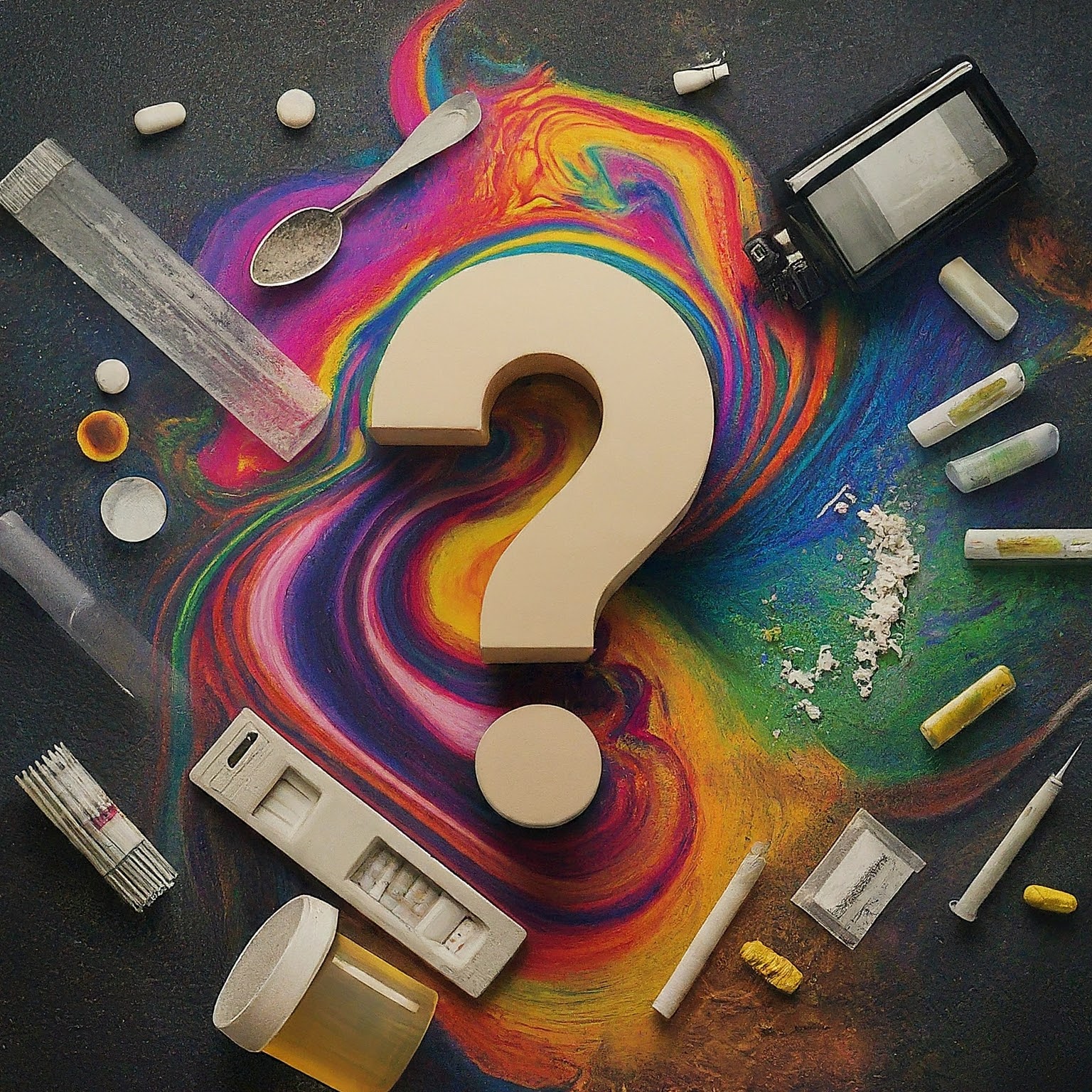Ever heard whispers of a molecule that unlocks hidden realms within the mind, a psychedelic powerhouse capable of inducing profound experiences and intense introspection? That, my friends, is DMT, N, N-Dimethyltryptamine. Naturally occurring in plants and even produced by our bodies, it’s a substance shrouded in mystery and controversy.expand_more But one question lingers for many: Can this enigmatic molecule show up on a drug test? The answer, like DMT itself, is a fascinating journey through science, legality, and individual responsibility.
What is DMT?
Imagine a key that unlocks a hidden vault within your mind, revealing vibrant landscapes and unimaginable vistas. That’s how some describe the effects of DMT, a powerful psychedelic compound found in plants like ayahuasca and even produced in trace amounts by the human brain.
When ingested, smoked, or injected, DMT induces intense, often short-lived, altered states of consciousness characterized by vivid visuals, profound emotional experiences, and a sense of connection to something beyond oneself.
However, due to its potent psychoactive effects and potential for misuse, DMT is classified as a Schedule I controlled substance in many countries, making its use and possession illegal.expand_more This legal status raises a crucial question: If you encounter DMT, could it leave a trace detectable by a drug test?
DMT on a Drug Test?
The answer, unfortunately, isn’t a simple yes or no. It depends on several factors, including the type of drug test, the timing of use, and even the individual’s metabolism. Let’s dive deeper into the murky waters of drug testing and see if we can find DMT:
The Test: There are three main types of drug tests:
- Urine: The most common type, it can detect DMT metabolites (breakdown products) for up to 24 hours after use, but the window is influenced by factors like hydration and pH.expand_more
- Blood: This test has a much shorter detection window, typically within 2 hours of use, making it less likely to catch DMT unless used very recently.expand_more
- Hair: This test can potentially detect DMT for up to 90 days, but it’s rarely used in standard testing and has limitations in accuracy.
Is DMT Detectable in Drug Tests?
The question of whether DMT shows up on a drug test is a complex one, much like the molecule itself. While the short answer might be “it depends,” that doesn’t paint the whole picture. Different types of tests have varied detection windows, with urine possibly showing traces up to 24 hours after use, blood catching it within a couple of hours, and hair potentially holding onto it for months.
However, DMT’s rapid breakdown and the need for specific tests make detection less likely than with other substances. Remember, this doesn’t mean you’re in the clear! Even if undetectable, the legal and health risks associated with DMT are real, and seeking professional guidance for any drug-related concerns is always the best course of action.
So, while the answer to the “detectable” question may not be definitive, one thing is crystal clear: responsible behavior and understanding the risks are crucial when navigating the world of substances like DMT.
How Long Does it Take to Feel the Effects?
DMT works like a rocket blast to your consciousness, launching you into its psychedelic realm within mere minutes.expand_more Depending on the method of administration, the effects can kick in as fast as 30 seconds (smoking) and peak within 5-10 minutes, lasting anywhere from 5 to 30 minutes before gently guiding you back to reality.
How the Body Processes DMT
Imagine your body as a bustling marketplace. DMT arrives, causing quite a stir, but it doesn’t stay long. Enzymes, our resident clean-up crew, quickly break it down into metabolites, like used-up goods being recycled. Most of these get flushed out through urine within a day, while some traces might linger in other places for short periods.
How Long Does DMT Stay In Your System?
This question requires a nuanced answer. The active form of DMT, the one causing the psychedelic effects, disappears quickly, usually within a few hours. However, its metabolic byproducts might stick around for a bit longer, potentially detectable in certain tests as mentioned earlier. Think of it like the faint scent of perfume lingering after the wearer is gone.
Important Considerations of Drug Testing:
Remember, while DMT may not show up on standard drug tests, it’s not invisible. Here are some considerations:
• Don’t mistake non-detection for a free pass: While standard drug tests might miss DMT, specialized tests exist, and their use still carries significant legal and health risks. Don’t make decisions based solely on this information.
• Legal consequences are real: DMT is a Schedule I controlled substance in many countries, and possession or use can result in severe penalties. Play it safe, and stay on the right side of the law.
• Health risks deserve attention: DMT, like any powerful substance, can have unpredictable effects on your physical and mental health. Always prioritize safety and well-being.
• Alternatives to drug testing exist: Employers and institutions should explore legal and ethical methods like skills assessments or behavioral observations for evaluating fitness, instead of relying solely on potentially invasive drug testing.
Alternatives to Drug Testing:
Instead of relying solely on drug testing, employers and institutions can explore alternative methods for assessing fitness for work or other purposes. Focusing on legal and ethical approaches, such as behavioral observation, skills assessments, or performance evaluations, can be more effective and less invasive.
Conclusion:
While understanding DMT detection limits can be informative, it should never encourage illegal activities. Responsible behavior and adherence to legal regulations are paramount. If you have concerns about drug use or testing, seek professional guidance and explore reliable, evidence-based information. Remember, the mysteries of the mind deserve to be explored with respect, responsibility, and ethical awareness.
FAQs

Alex is a seasoned writer and researcher, specializing in psychedelic studies and mental health. Known for insightful and authoritative content, he combines extensive knowledge with a passion for exploring wellness and alternative therapies. Alex’s work is a trusted resource for readers delving into the world of mental well-being.


Leave a Reply